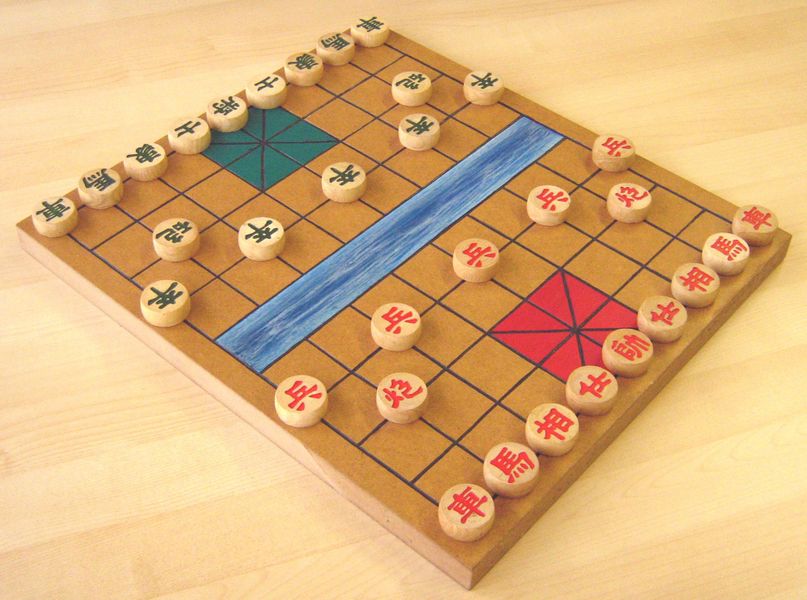Xiangqi (762) Board Game
Xiangqi, also known as Chinese chess, is a traditional board game that originated in China around the 8th century. It is a two-player game that involves strategic thinking and skillful tactics. The game is played on a grid board with various pieces that have different movements and abilities. Xiangqi has a long history and is considered one of the most popular strategy games in China.
Game Components of Xiangqi
How To Setup Xiangqi
To set up the game, place the pieces on specific intersections of the board. The General is placed in the center of the back rank, flanked by Advisors, Elephants, Horses, and Chariots. Cannons are positioned on the second outermost files of the same rank as the top of the palace, and Soldiers are lined up on every other intersection along the back rank. The pieces are symmetrically arranged on both sides of the board.
Gameplay Mechanics and Game Objective
– General: Moves one space vertically or horizontally within the palace.
– Advisor: Moves one space diagonally within the palace.
– Elephant: Moves two spaces diagonally but cannot cross the river.
– Horse: Moves one space orthogonally followed by one space diagonally.
– Chariot: Moves any number of spaces vertically or horizontally.
– Cannon: Moves any number of spaces vertically or horizontally but captures by jumping over one piece.
– Soldier: Moves one space forward before crossing the river, and one space forward or sideways after crossing the river.
Player Experience
Xiangqi offers a rich and strategic gameplay experience, blending elements of Western chess with unique Chinese characteristics. Players need to master various tactics such as forks, pins, and sacrifices to outmaneuver their opponents. The game requires deep understanding and planning, making it both challenging and rewarding.
Pros
Cons
Personal Thoughts on Xiangqi
Xiangqi is for anyone who enjoys strategic board games and is willing to learn and master its unique mechanics. It is particularly appealing to those interested in cultural and historical aspects of gaming, as well as those looking for a game that offers a different yet equally challenging experience compared to Western chess. With its rich history and deep gameplay, Xiangqi is a game that can provide countless hours of intellectual entertainment and satisfaction.
We are supported by our audience. When you purchase through links on our site, we may earn an affiliate commission, at no extra cost for you. Learn more.

